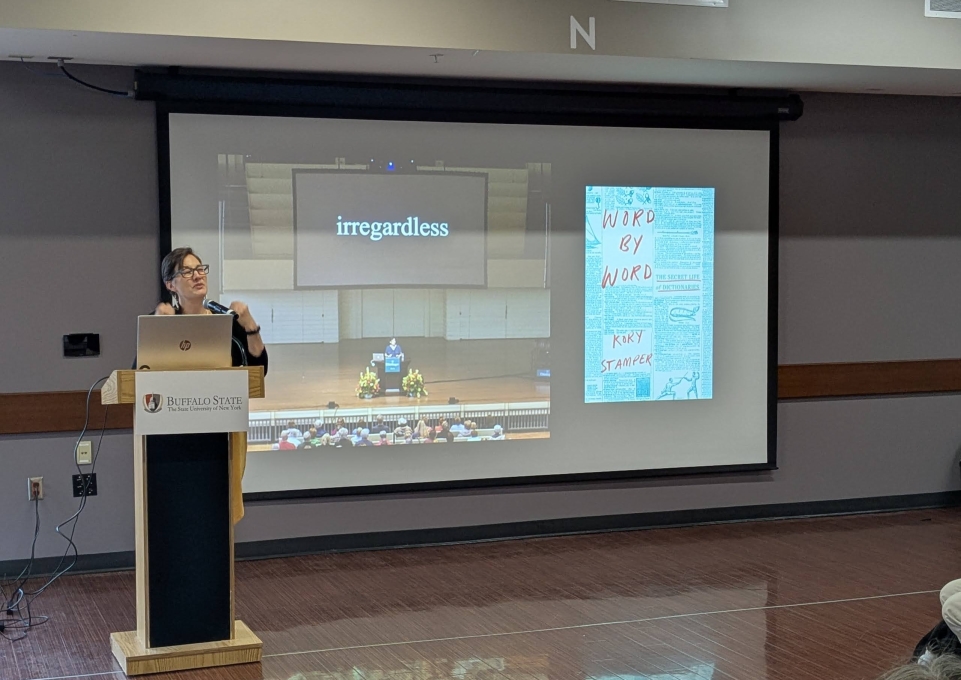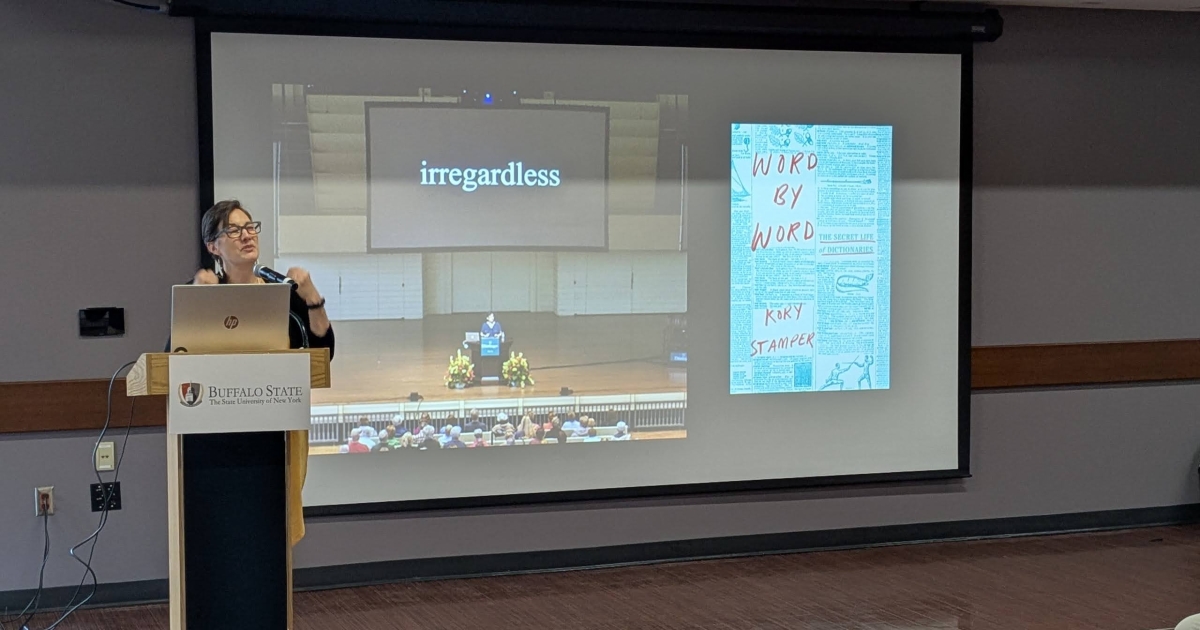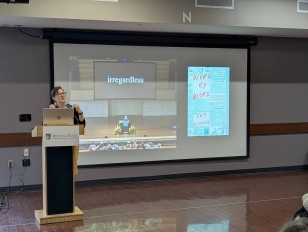
From May 29-31, scholars, practicing lexicographers—people who write dictionaries—local educators, and college students gathered for the 25th Biennial Dictionary Society of North America Conference, held on the Buffalo State University campus (with one session at the Buffalo Erie County Central Library).
The conference celebrated the 50th anniversary of the Dictionary Society of North America (DSNA) and included moderated panels on lexicographical topics, presentations, receptions, and a banquet featuring an address by DSNA president Kory Stamper, author of Word by Word: The Secret Life of Dictionaries.
“The Dictionary Society meeting allows professional lexicographers and people who otherwise study or care about dictionaries to carry on a conversation about how and why dictionaries are written and used,” said Lisa Berglund, Buffalo State English professor and conference co-organizer. “It is critical to have such conversations, especially at this point in history, when artificial intelligence is upending much of our understanding of how we communicate and who makes the ‘rules.’ Dictionaries have—for centuries—played a pivotal role, not just in describing language, but in shaping cultural, national, social, and political forces.”
This event was the result of a collaborative, community-wide effort led by Berglund and co-organizer Walter Hakala of the English Department at University at Buffalo (UB). The event was co-sponsored by Buffalo State’s English Department and School of Arts and Sciences, the University at Buffalo Department of English, Department of Linguistics, Humanities Institute, and Baldy Center for Law and Social Policy; as well as the Buffalo and Erie County Public Library. Multiple Buffalo State departments and offices—including Design and Print, Events Management, Chartwells, and Technology Support Services—played key roles in the event’s success.
“Dictionaries have—for centuries—played a pivotal role, not just in describing language, but in shaping cultural, national, social, and political forces.”
Throughout the conference, attendees were able to attend a variety of panel discussions, as well as view the Central Library’s rare book exhibit, “What Does It All Mean? Exploring the Dictionary,” curated in collaboration with DSNA co-chairs Berglund and Hakala. Heather Gring, BECPL’s rare book curator, assisted in arranging the final session, which was held at the Central Library and was open to the public.
Thanks to the support of Cambridge Dictionaries, which funded free day passes, the conference was accessible for local educators and students.
“I met my new idol, professor Anatoly Liberman, a linguist, translator, and etymologist who writes enthrallingly about words,” said Glasha Zinenko, a rising senior at Buffalo State pursuing a double major in English and philosophy. “I was in awe being in the same room as these linguists.”
The conference also provided attendees the opportunity to experience the City of Buffalo. Carol Percy, an attendee from the University of Toronto, said she enjoyed that the event coincided with the city’s Pride celebrations.
“I spent the day at AKG and the Buffalo History Museum,” Percy said, “waving a rainbow flag at the parade in between, seeing three-plus hours’ worth of local people supporting their neighbors.”
“People from all over the world got to come and see how great the City of Buffalo and our university truly are, and how lucky we are to be in the heart of the city,” added Buffalo State English graduate Lilian Hamlett, who served as conference intern. “It’s a shame it is a biennial conference; I’m ready for the next one now!”
While the conference will not take place for another two years, the study of words will keep attendees occupied.
“People will always need to find out the meanings of words,” Zinenko said. “We aren’t even close to quitting being curious about language, words, their meanings, and origins.”



